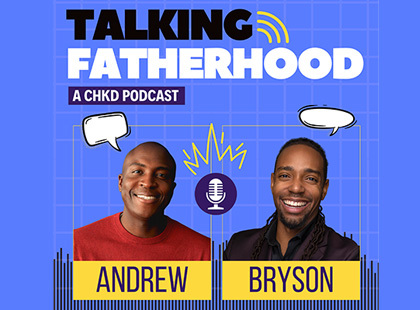One of the best things about youth sports is that they provide a low-pressure entrance for kids into athletic activities. With so many young athletes participating, the commitment of the parent volunteers keeps recreational sports alive. Volunteering can be a rewarding experience, and I’ve had the opportunity to do it many times, coaching my daughters in both soccer and basketball. But being a father and a coach can alter your relationship with your child. It can be very fulfilling, but it's not without its challenges. Below are some insights from my experiences and a few tips you can apply to make this season successful for you and your child.
Focus on Making It a Positive Experience
There’s a saying that has always stuck with me, "You never want to be a kid's last coach." Put simply; you don't want to be the reason a child stops enjoying a sport or has a bad experience. That becomes even more important when coaching your child. Ultimately, it's their journey, and your role as a coach is to nurture confidence and enjoyment. How you engage with them, whether during practice, while en route to games, or sometimes even at home, can set the tone for their entire experience. A negative coaching experience with a stranger is one thing, but when it happens with a parent, it means a great deal more. Always strive to be a source of encouragement and positivity.
It's About Them, Not You
One of the biggest challenges as a father-coach is resisting the urge to live vicariously through your child. It’s natural to get excited when you see your child play a sport you love and coaching them seems like the perfect opportunity to teach them to love it, too. But remind yourself—this is their experience. Your job is to help and guide, not to push them toward the goals you have in mind for them or once had for yourself. Encourage them to forge their own path, even if that means letting go of some of your expectations. When you expect them to perform at the same level you did or achieve goals you never could, you’re placing a lot of pressure on them, which can unintentionally affect how you interact with them.
Put Yourself in Their Shoes
It’s not often we stop to think about how overwhelming sports are for kids. There’s a lot of pressure to execute newly learned skills publicly in front of screaming coaches and parents. Not to mention, when they finally get the ball in their possession, there’s a swarm of kids trying to take it from them—sometimes even their teammates! It's a high-pressure environment for someone still developing their skills, which is why it's so important to remain supportive. You may get frustrated because your child isn’t demonstrating the same ability you might see during practice or at home, but game time is an entirely different experience for them. Be patient and remind yourself they are doing their best under very stressful circumstances.
Progress not Winning
Before you embark on your journey as a father-coach, consider this: How competitive are you, and how do you handle losing? It can be easy to get frustrated during a game. If you have a competitive nature, you might unknowingly be hard on the kids or express extreme disappointment after a loss. As a coach, most especially to your child, it is vital that you remain positive and supportive. Losing isn't fun, but if you teach your child to focus on their progress and celebrate small victories, they'll leave the game feeling good about it. And yes, it's natural to want them to win, but the real victory should be when you watch them learn and grow from the game, enjoying it in the process.
To dive deeper into this topic, be sure to check out the podcast episode with my co-host, Bryson. In it, we discuss our sports backgrounds, competitive natures, and experiences as father-coaches.


 Z. Andrew Jatau MS, LPC is a father, husband, and content creator on a mission to empower fellow dads. With a background in counseling and fatherhood consulting, Andrew provides a unique blend of mental health expertise and family dedication to his work. As a full-time content creator and manager, Andrew produces educational digital content for kids, while also sharing insights and advice on fatherhood, mental health, and personal growth.
Z. Andrew Jatau MS, LPC is a father, husband, and content creator on a mission to empower fellow dads. With a background in counseling and fatherhood consulting, Andrew provides a unique blend of mental health expertise and family dedication to his work. As a full-time content creator and manager, Andrew produces educational digital content for kids, while also sharing insights and advice on fatherhood, mental health, and personal growth. Bryson Creighton is a dedicated father to two girls and husband to his high school sweetheart. Juggling parenthood, self-worth, a relationship, and an executive career, he offers a unique family man's perspective. Despite the challenges around time, he prioritizes his family, showing his selfless devotion to fatherhood. An avid sports enthusiast, Bryson expertly balances this passion with family commitments, embodying family-first mantra.
Bryson Creighton is a dedicated father to two girls and husband to his high school sweetheart. Juggling parenthood, self-worth, a relationship, and an executive career, he offers a unique family man's perspective. Despite the challenges around time, he prioritizes his family, showing his selfless devotion to fatherhood. An avid sports enthusiast, Bryson expertly balances this passion with family commitments, embodying family-first mantra.